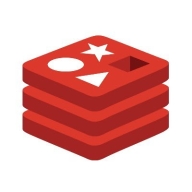

Find out what your peers are saying about MongoDB, ScyllaDB, InfluxData and others in NoSQL Databases.

Amazon SimpleDB is a highly available NoSQL data store that offloads the work of database administration. Developers simply store and query data items via web services requests and Amazon SimpleDB does the rest.
Unbound by the strict requirements of a relational database, Amazon SimpleDB is optimized to provide high availability and flexibility, with little or no administrative burden. Behind the scenes, Amazon SimpleDB creates and manages multiple geographically distributed replicas of your data automatically to enable high availability and data durability. The service charges you only for the resources actually consumed in storing your data and serving your requests. You can change your data model on the fly, and data is automatically indexed for you. With Amazon SimpleDB, you can focus on application development without worrying about infrastructure provisioning, high availability, software maintenance, schema and index management, or performance tuning.
Redis is a high-performance, scalable, and easy-to-use caching solution that improves application performance. It is also used for session management, real-time analytics, and as a message broker.
Redis's valuable features include its ability to handle large amounts of data quickly, its simplicity and straightforward setup process, and its support for various data structures, providing flexibility for different use cases.
We monitor all NoSQL Databases reviews to prevent fraudulent reviews and keep review quality high. We do not post reviews by company employees or direct competitors. We validate each review for authenticity via cross-reference with LinkedIn, and personal follow-up with the reviewer when necessary.